| 09:00 - 09:30 | Opening Ceremony Welcoming speeches 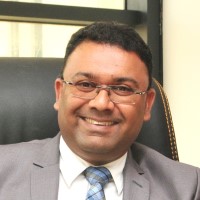 | Hon. Mr Yogida Sawmynaden
Minister
Ministry of Technology, Communication and Innovation
Mauritius (Republic of)
Biography
|
 | Hon. Mr Marie Joseph Noël Etienne Ghislain Sinatambou
Minister
Ministry of Social Security, National Solidarity, and Environment and Sustainable Development
Mauritius (Republic of) |
 | Mr Mahmad Aleem Bocus
Chairman
Information and Communication Technologies Authority (ICTA)
Mauritius (Republic of)
Biography
|
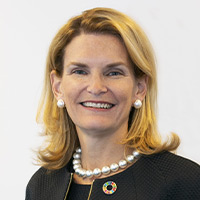 | Ms Doreen Bogdan-Martin
Director, Telecommunication Development Bureau
International Telecommunication Union (ITU)
Biography
|
|
| 09:30 - 10:00 | Group picture and coffee breakThe coffee break is kindly sponsored by ICTA. |
| 10:00 - 12:00 | Session 1: Leaders' dialogue: disaster management and risk reduction - ICT opportunities and challenges There is global recognition for the need to put disaster management and risk reduction at the core of sustainable development strategies. The 2030 Agenda for Sustainable Development acknowledges the role of ICTs as a cross-cutting tool for development, and the Sendai Framework for Disaster Risk Reduction recognizes telecommunications as critical infrastructure, along with the critical role of ICT services, including big data and social media. Today, the large majority of the world’s population is covered by a mobile cellular signal and half the world’s population is using the Internet. This allows more people to be reached, in a timely manner. Greater connectivity and ICT access and use opens up new ways of delivering services and saving lives. This Leaders’ Dialogue will highlight key challenges and opportunities of using ICTs for disaster risk reduction and management, from the perspective of the international development and humanitarian communities and the ICT industry. It will highlight country experiences and present good practices with regard to cooperation, coordination and partnerships. Chair  | Mr Jerome Louis
Officer-in-Charge
Information and Communication Technologies Authority (ICTA)
Mauritius (Republic of)
Biography
|
Moderator  | Ms Doreen Bogdan-Martin
Director, Telecommunication Development Bureau
International Telecommunication Union (ITU)
Biography
|
Panelists  | Dr Rooba Yanembal Moorghen
Permanent Secretary
Ministry of Technology, Communication and Innovation
Mauritius (Republic of)
Biography
|
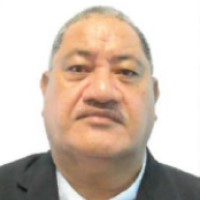 | H.E. Mr Monise Laafai
Minister
Ministry of Communications and Transport
Tuvalu
Biography
|
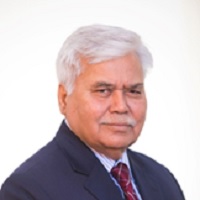 | Dr Ram Sewak Sharma
Chairman
Telecom Regulatory Authority of India (TRAI)
Biography
|
 | Ms Kirsi Madi
Director
United Nations Office for Disaster Risk Reduction (UNISDR)
Biography
|
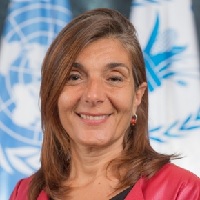 | Ms Enrica Porcari
Chief, Information Office and Director, Technology Division, World Food Programme (WFP)
Chair, Emergency Telecommunications Cluster (ETC)
Biography
|
 | Ms Nanjira Sambuli
Senior Policy Manager, World Wide Web Foundation
Member of the United Nations Secretary General's High-level Panel on Digital Cooperation
Biography
|
|
| 12:00 - 12:30 | Side-event: The Role of the Satellite Communication in Disaster Response(Interpretation will not be available for this session.) Presenter |
| 12:30 - 14:00 | Lunch break This lunch is kindly sponsored by ICTA. (The lunch will take place at the Senso restaurant of the Intercontinental Hotel.)
|
| 14:00 - 15:30 | Session 2: High level debate: Information and Communication Technologies for saving lives – lessons from the Caribbean, a case studyDisasters have devastating effects on people’s lives, livelihoods, and they often hit the most vulnerable people and countries, in particular the Least Developed Countries and Small Island Developing States. In the Caribbean, the devastations of Category 5 hurricanes Maria and Irma that hit the region in 2017, lead to widespread destruction, loss of life, and affected economic growth. At the same time, ICTs were used extensively to monitor and track the hurricanes, to warn communities at risk, and for recovery efforts. This session will provide a review of the role of ICTs in mitigation, preparedness and response. A panel of key Caribbean stakeholders and experts will discuss lessons learned from the 2017 hurricanes, identify the progress that has been made in using ICTs for disaster risk reduction and management, and share the result from recent reviews and assessments. Moderator 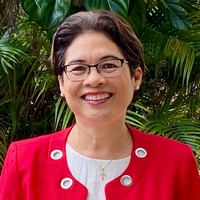 | Ms Kim Mallalieu
Deputy Chairman, Telecommunications Authority of Trinidad and Tobago
Senior Lecturer, The University of the West Indies
Biography
|
Panelists  | Ms Bernadette Lewis
Secretary-General
Caribbean Telecommunications Union (CTU)
Biography
|
 | Mr David Farrell
Principal
Caribbean Institute for Meteorology and Hydrology (CIMH)
Biography
|
 | Ms Nikima Royer Jno Baptiste
Chief Executive Officer
Digicel (Dominica) Ltd
Biography
|
 | Mr Damian Barker
Deputy Director
Department of Disaster Management, Anguilla
Biography
|
|
| 15:30 - 16:00 | Coffee breakKindly sponsored by ICTA. |
| 16:00 - 17:00 | Session 3: Breakout sessionsA limited number of breakout sessions will engage a group of participants around specific topics, to address and provide inputs to challenges related to the overall GET-19 topic of ‘Innovating together to save lives’. Breakout sessions will be moderated by a facilitator and guided by a set of questions that will be made available to participants ahead of the event. Each breakout session will include two short introductory presentations, followed by a discussion round. The key outcomes and recommendations of the breakout session will presented by the session facilitators on the last day of the meeting (Friday, 08 March, 11:00-12:00).
(Interpretation will not be available for these sessions.)
|
| | Breakout Group 1: Disaster Connectivity MapsAccess to information and communication technology (ICT) networks and services are critical, in particular in times of disasters. Real-time information on the type, level and quality of connectivity are important to identify connectivity gaps, and to make decisions on where and when to deploy often limited human, financial and physical resources. A number of ICT industry players – mobile network operators, Internet service providers, Internet and social media companies – have data that could be used to identify and monitor the status of connectivity, in real time. The objective of this session is to discuss possible ways of developing disaster connectivity maps that build on different sources and that can provide live information on the ground, when disasters strike.
(Interpretation will not be available for this session.) Facilitators  | Mr Frank Schott
Managing Director, New Program Development
NetHope
Biography
|
 | Ms Vanessa Gray
Head, Least Developed Countries, Small Island Developing States & Emergency Telecommunications Division
International Telecommunication Union (ITU)
Biography
|
Firestarters |
| | Breakout Group 2: Framework for Connectivity CooperationWhile connectivity challenges arise during almost every disaster or emergency, each has its unique circumstances and obstacles to overcome. This session strives to outline the commonalities across most connectivity crises – including the stakeholders and their roles, technical challenges, policy challenges, and prioritization trade-offs – in an attempt to establish a common Framework for Connectivity Collaboration. The objective of this session is to come to a common understanding and approach to re-establishing connectivity during a crisis to enable well-meaning responders, including service providers, governments and other stakeholders to move quickly to restore connectivity when people are most in need.
(Interpretation will not be available for this session.) Facilitators  | Mr Chris Weasler
Head, Global Spectrum Policy and Connectivity Crisis Response Program
Facebook
Biography
|
 | Ms Enrica Porcari
Chief Information Officer and Director, Technology Division, World Food Programme (WFP)
Chair, Emergency Telecommunications Cluster (ETC)
Biography
|
Firestarters  | Mr David Marshack
Global Regulatory Support
Loon
Biography
|
 | Mr Lars Ruediger
Program Director, Ericsson Response
Ericsson
Biography
|
|
| 18:00 - 20:00 | Welcome ReceptionThe welcome reception is kindly sponsored by ICTA.
(The reception will be held by the Fountain of the Intercontinental Hotel.) |
| 09:00 - 10:30 | Session 4: Disruptive technologies and innovations for connectivity, disaster risk reduction and responseDisruptive technologies and technological advancements and innovation create new possibilities for supporting disaster resiliency and risk reduction actions. This includes developments in the area of 5G, artificial intelligence (AI), the Internet of Things (IoT), and big data. Innovations in such areas as satellite imagery, robotics and drone technology are transforming many fields, including disaster risk reduction and management. To ensure that connectivity is available in remote and rural areas, existing technologies are being improved, and new solutions developed. This session will identify innovative IT and ICT solutions to provide connectivity, as well as emergency services when disasters strike. It will assess the transformative potential of artificial intelligence and other disruptive technologies as a driver of accelerated and structural change, and assess progress and opportunities. Moderator  | Mr Kartik Kulkarni
Chair, Global Humanitarian Technology Activities
Institute of Electrical and Electronics Engineers (IEEE)
Biography
|
Presenters |
| 10:30 - 11:00 | Coffee breakKindly sponsored by ICTA. |
| 11:00 - 12:00 | Session 5: Emergency telecommunications for better preparednessGreater preparedness helps address potential impacts caused by natural hazards more proactively. Information and communication technologies offer important tools to identify and monitor risks, and deliver alerting messages to vulnerable communities. Many countries are reducing the risk and impact of disasters by adopting innovative policies, by optimizing the use of multi-hazard early warning systems, and through efficient and effective last mile communication. The aim of this session is to discuss the benefits of investing in preparedness, to highlight innovations and improvements in the area of preparedness, and to present policies and initiatives that help to monitor and identify risks and deliver alerting messages to vulnerable and threatened communities. It will highlight the role of policy makers to position themselves as industry facilitators for saving lives and showcase good practices of cooperation and partnerships. Moderator  | Ms Salma Farouque
Preparedness and Resilience Officer Emergency Telecommunications Cluster (ETC)
World Food Programme (WFP)
Biography
|
Presenters |
| 12:00 - 12:30 | Side-event: Regulatory Actions for Disaster Response – The Brumadinho’s Case(Interpretation will not be available for this session.) Presenter |
| 12:30 - 14:00 | Lunch breakThis lunch is kindly sponsored by ICTA. (The lunch will take place at the Senso restaurant of the Intercontinental Hotel.)
|
| 14:00 - 15:00 | Session 6: ICT strategies, policies and plans for disaster managementPreparedness is important to enhance the use of telecommunications and information and communication technologies for disaster management and risk reduction. Successful disaster risk reduction results from the combination of top-down, institutional changes and strategies, with bottom-up, local and community-based approaches, including in the areas of telecommunications and ICTs. This includes specific regulation and policies and the development of national emergency telecommunication plans (NETPs) and standard operating procedures. To guide countries, ITU is developing global guidelines for the development of NETPs. This session will present these guidelines, and identify opportunities and challenges in adoption and implementation at the national level. It will highlight the importance of regional and national coordination, the challenges of importing ICT equipment and the importance of the Tampere Convention. The session will also discuss policies and regulation that are necessary to operationalize an NETP. Moderator  | Mr Joseph Burton
Counselor for Technology and Security Policy
International Communications and Information Policy
United States of America
Biography
|
Presenter Discussants  | H.E. Mr Lealailepule Rimoni Aiafi
Associate Minister
Ministry of Communications and Information Technology
Samoa (Independent State of)
Biography
|
 | Ms Abida Shaukat
Director of Radio Based Services
Pakistan Telecommunication Authority
Biography
|
|
| 15:00 - 15:15 | Coffee breakKindly sponsored by ICTA. |
| 15:15 - 17:00 | Session 7: People, processes, technologies – a tabletop exercise
Tying in with the theme of GET-19, a simulation tabletop exercise on a fictitious disaster will engage participants in an interactive learning experience on the alignment between “people, process, technology” for effective preparedness and response. The objective of this exercise is to increase awareness about the need of inter-agency coordination in disaster preparedness and response, to highlight the need for clear coordination structures and engagement with telecommunication service providers, media agencies, telecommunications bodies, meteorological and seismology service, and disaster management authorities. It will further demonstrate that preparedness efforts can improve response effectiveness, showcase the process of dissemination of warning advisory to the public using ICT-based early warning systems, as well as the value of GIS visualization and ICT enabled tools for decision-making. (Session co-organized with the Emergency Telecommunication Cluster (ETC).)
Facililtator |
| 09:00 - 10:00 | Session 8: Improving disaster resilienceICTs are key for building resilient communities by providing timely information on hazards through early warning and alerts and the delivery of critical information for better decision making when disasters strike. At the same time, it is critical to ensure that the resilience of all communication networks is strengthened and remain operational to be used to provide the necessary platforms to keep communication channels open, and to allow citizens to play an active role in disaster management activities. Increasing communication resilience to disasters to help affected governments safeguard systems and prepare for responses when disasters strike also means that extra capacity or capabilities, as well as less vulnerable services such as satellite, are prepared in advance and activated as needed. The Sendai Framework for Disaster Risk Reduction highlights the importance of investing in disaster risk reduction for resilience and enhancing disaster preparedness for effective response, and to "build back better" in recovery, rehabilitation and reconstruction. It is important to invest in resilient ICT infrastructure to ensure that national telecommunication infrastructure is robust enough to provide communications throughout the disaster management cycle. This session will raise awareness on the opportunities of ICT to build more resilient communities. It will also highlight the need to invest in resilient ICT infrastructure for sustainable development and disaster relief and resilience. Moderator  | Ms Elysa Jones
Chair
OASIS Emergency Management Technical Committee
Biography
|
Presenters |
| 10:00 - 10:30 | Coffee breakKindly sponsored by ICTA. |
| 10:30 - 12:00 | Session 9: Transforming the humanitarian response through ICTs Each year millions of people are forced to leave their homes and seek refuge from conflicts, violence, human rights violations, and the impacts of natural hazards and climate change. The number of forcibly displaced people continued to rise throughout 2017 and at the end of 2017, 69 million people were in need of protection and assistance. Up to 85 per cent of the forcibly displaced find refuge in low- and middle-income countries. At the same time new levels of ICT connectivity and use offer new opportunities for addressing the growing challenges deriving from humanitarian crisis. ICTs offer new tools for communicating within and between humanitarian organizations, and to reach their communities at need. They also provide critical information on and for those in need, and offer new services, for example through digital payment and digital identification tools. This session will discuss the main ways that humanitarian operations can become more efficient, effective and responsive by using ICTs. It will also discuss ways of mainstreaming data collection and analysis in emergency response, highlight challenges in terms of connectivity, services and ICT equipment, and address ethical challenges related to the use of data. Moderator  | Mr Timothy Kelly
Lead Digital Development Specialist
World Bank Group
Biography
|
Presenters |
| 12:00 - 12:30 | Side-event: Federal Communications Commission (FCC) Role in Disaster Planning(Interpretation will not be available for this session.) Presenter |
| 12:30 - 13:30 | Special lunch to celebrate International Women’s Day 2019A special lunch sponsored by ICTA to celebrate International Women’s Day 2019.
(The lunch will take place at the Senso restaurant of the Intercontinental Hotel.)
Opening remarks by  | Ms Doreen Bogdan-Martin
Director, Telecommunication Development Bureau
International Telecommunication Union (ITU)
Biography
|
 | Ms Nanjira Sambuli
Senior Policy Manager, World Wide Web Foundation
Member of the United Nations Secretary General's High-level Panel on Digital Cooperation
Biography
|
|
| 13:30 - 14:15 | Session 10: Results from breakout sessions on day 1 and key lessons of the tabletop exercise on day 2Facilitators of the breakout sessions (Session 3) and the tabletop exercise (Session 7) will present key discussion points, findings and recommendations. Facilitators  | Mr Frank Schott
Managing Director, New Program Development
NetHope
Biography
|
|
| 14:15 - 14:30 | Presentation of Chair's summary and conclusionsThe Chair of GET-2019 will present the conclusions and recommendations of the meeting.  | Mr Jerome Louis
Officer-in-Charge
Information and Communication Technologies Authority (ICTA)
Mauritius (Republic of)
Biography
|
|
| 14:30 - 15:00 | Closing ceremony  | Mr Mahmad Aleem Bocus
Chairman
Information and Communication Technologies Authority (ICTA)
Mauritius (Republic of)
Biography
|
 | Ms Doreen Bogdan-Martin
Director, Telecommunication Development Bureau
International Telecommunication Union (ITU)
Biography
|
|
